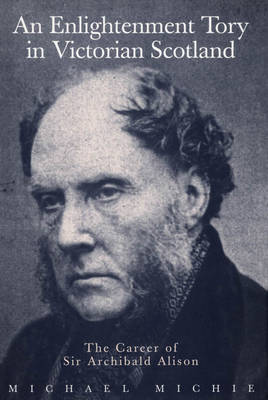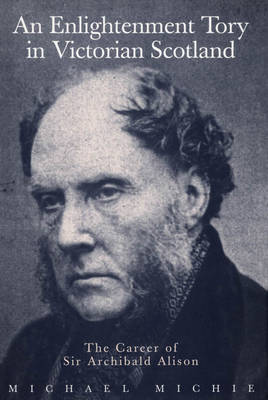
- Afhalen na 1 uur in een winkel met voorraad
- Gratis thuislevering in België vanaf € 30
- Ruim aanbod met 7 miljoen producten
- Afhalen na 1 uur in een winkel met voorraad
- Gratis thuislevering in België vanaf € 30
- Ruim aanbod met 7 miljoen producten
Zoeken
An Enlightenment Tory in Victorian Scotland
The Career of Sir Archibald Alisonvolume 25
Michael Michie
€ 186,95
+ 373 punten
Omschrijving
An Enlightenment Tory in Victorian Scotland is a political and intellectual biography of Sir Archibald Alison (1792-1867), historian, social critic, criminal lawyer, and sheriff of Lanarkshire. The first author to examine the full range of Alison's writings and activities, Michael Michie reveals a significant link between the Scottish Enlightenment and Victorian conservatism. Michie argues that Alison's conservative ideas were deeply influenced by the social and political thought of the Scottish Enlightenment. He contends that Alison was the embodiment of the High Tory appropriation of the legacy of Adam Smith particularly evident in the belief that commercial agrarian capitalist society was the most appropriate form for both the maintenance of order and the practice of virtue. Developing the suggestion that a conservative interpretation of the enlightened legacy was possible for the succeeding century, Michie's study offers a useful corrective to the received wisdom that Victorian Liberalism was the true heir of the Scottish Enlightenment.
Specificaties
Betrokkenen
- Auteur(s):
- Uitgeverij:
Inhoud
- Aantal bladzijden:
- 240
- Taal:
- Engels
- Reeks:
- Reeksnummer:
- nr. 25
Eigenschappen
- Productcode (EAN):
- 9780773510258
- Verschijningsdatum:
- 10/11/1997
- Uitvoering:
- Hardcover
- Formaat:
- Genaaid
- Afmetingen:
- 168 mm x 235 mm
- Gewicht:
- 535 g

Alleen bij Standaard Boekhandel
+ 373 punten op je klantenkaart van Standaard Boekhandel
Beoordelingen
We publiceren alleen reviews die voldoen aan de voorwaarden voor reviews. Bekijk onze voorwaarden voor reviews.








